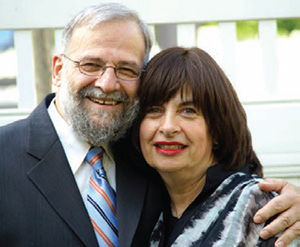From a Jewish culinary perspective, it is only fair that turkey receives top billing on Thanksgiving. During the rest of the year, Jewish cuisine is filled with chicken-based dishes while turkey usually gets the short end of the (drum)stick. On Thanksgiving, however, the tables are turned and the script is flipped as the turkey takes center stage and the chicken is essentially reduced to an understudy.
In many respects, the turkey simply cannot compete with the chicken, which is why the turkey normally is a paltry poultry. For example, few if any Jews eat turkey soup whereas chicken soup is not only widely consumed but also is touted as having medicinal benefits. Nobody is eating turkey soup to cure the common cold just like nobody is eating turkey cholent to cure a hangover.
For the record, adding matzah balls and noodles to turkey soup probably would not make the broth more appetizing. There are other instances in life where adding something would make little to no difference, like adding tryptophan to Jolt soda.
Speaking of tryptophan, it is a common misconception that turkey, more than other edible items, has the highest level of the sleep-inducing (or at least shabbos nap-inducing) chemical. Truth be told, you can find higher levels of tryptophan in chicken breast, firm tofu and sockeye salmon. You also can find higher levels of Vitamin C in guava than in oranges, you can find higher levels of Vitamin A in sweet potatoes than in carrots and you can find higher levels of nickel in a five-cent coin than in pumpernickel bread.
Turkey loses to chicken in other aspects. For example, chicken schnitzel is available the world over but you will have to look long and hard to find turkey schnitzel. Adding insult to injury, the chicken schnitzel market is filled with wonderful varieties including panko, pretzel and cornflake. You would be extremely hard-pressed to lay your hands on cornflake turkey schnitzel, which is almost as rare as Cap’n Crunch lamb chops or Froot Loops filet mignon.
Even comedy favors the chicken over the turkey. Perhaps the most famous joke in American culture begins with the following rhetorical question: “Why did the chicken cross the road?” On Thanksgiving, despite the turkey-centric meal, the same chicken-themed phraseology is used, meaning that no holiday joke-tellers are asking “why did the turkey cross the road?” Similarly, no holiday joke-tellers are asking “how many turkeys does it take to change a lightbulb?” (Answer: Two, one turkey to change the bulb and the other to stand look-out for game bird hunters.)
In French, a turkey is called “coq d’inde,” a name that refers to the country of India. This India connection is found in how other languages refer to the turkey, including Polish (“indyk”), Basque (“indioliar”), and Armenian (“hndikahav,” literally “Indian chicken”). In Luxembourg, however, the turkey is known as “schnuddelhong,” which means “snot-hen” and celebrates the turkey’s pronounced neck-based wattles. If someone refers to you as a “snot-hen,” that probably is not a compliment just like if someone refers to you as a farfel-face, herring-head or bialy-breath.
The one major advantage that the turkey has over the chicken is that the turkey is not associated with cowardice. The chicken arguably is the poster-child for the gutless and lily-livered, especially in light of the colloquial phrase “chickening out,” which means to back out of something because of fear. Many experts contend that the phrase “chickening out” comes from the American Civil War and specifically from the 1864 Union Army enlistment in which a chicken was provided to each person who enlisted. The recipient was supposed to take the chicken home for dinner and then return the next day to report for duty. Sometimes, a would-be soldier would get cold feet and shamefully remain home, thus chickening out. Of course, from a self-preservation perspective, there are moments in history when chickening out paid dividends, particularly for those who chickened out of building the Golden Calf, partying in Sodom and Gomorrah or appearing in the 2019 movie version of the musical Cats.
In contrast, going “cold turkey” is a positive action. It means to abruptly stop taking drugs or other harmful substances. Even the phrase “talk turkey” is relatively positive, meaning to speak openly and bluntly. Thus, in terms of pecking order, it is better to talk turkey than to chicken out just like it is better to have a nest egg than egg on your face.
Final thought: From what type of cup does a turkey drink? A “gobble”t.
Send comments or criticism to [email protected].
By Jon Kranz













